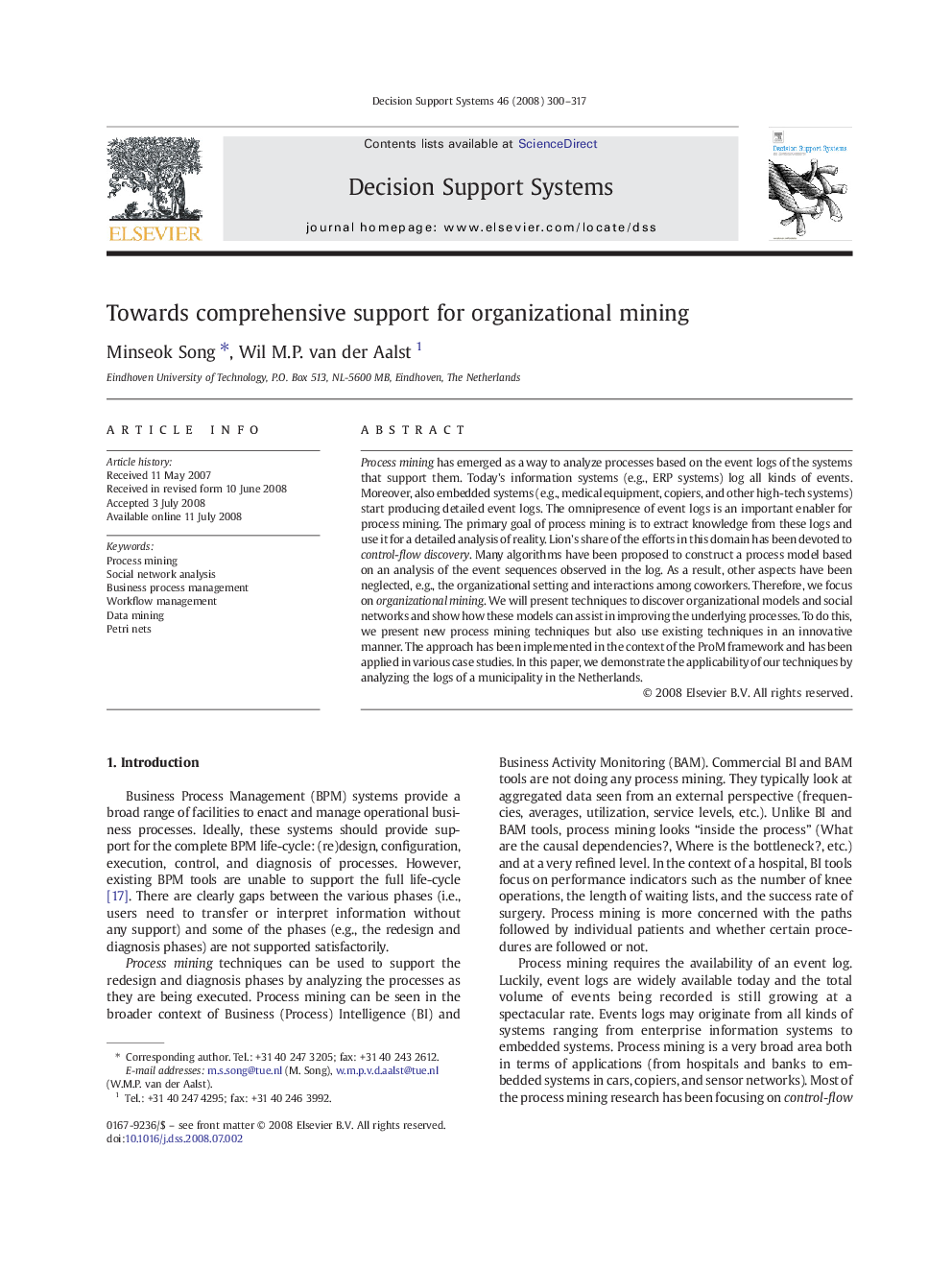| Article ID | Journal | Published Year | Pages | File Type |
|---|---|---|---|---|
| 552402 | Decision Support Systems | 2008 | 18 Pages |
Process mining has emerged as a way to analyze processes based on the event logs of the systems that support them. Today's information systems (e.g., ERP systems) log all kinds of events. Moreover, also embedded systems (e.g., medical equipment, copiers, and other high-tech systems) start producing detailed event logs. The omnipresence of event logs is an important enabler for process mining. The primary goal of process mining is to extract knowledge from these logs and use it for a detailed analysis of reality. Lion's share of the efforts in this domain has been devoted to control-flow discovery. Many algorithms have been proposed to construct a process model based on an analysis of the event sequences observed in the log. As a result, other aspects have been neglected, e.g., the organizational setting and interactions among coworkers. Therefore, we focus on organizational mining. We will present techniques to discover organizational models and social networks and show how these models can assist in improving the underlying processes. To do this, we present new process mining techniques but also use existing techniques in an innovative manner. The approach has been implemented in the context of the ProM framework and has been applied in various case studies. In this paper, we demonstrate the applicability of our techniques by analyzing the logs of a municipality in the Netherlands.
